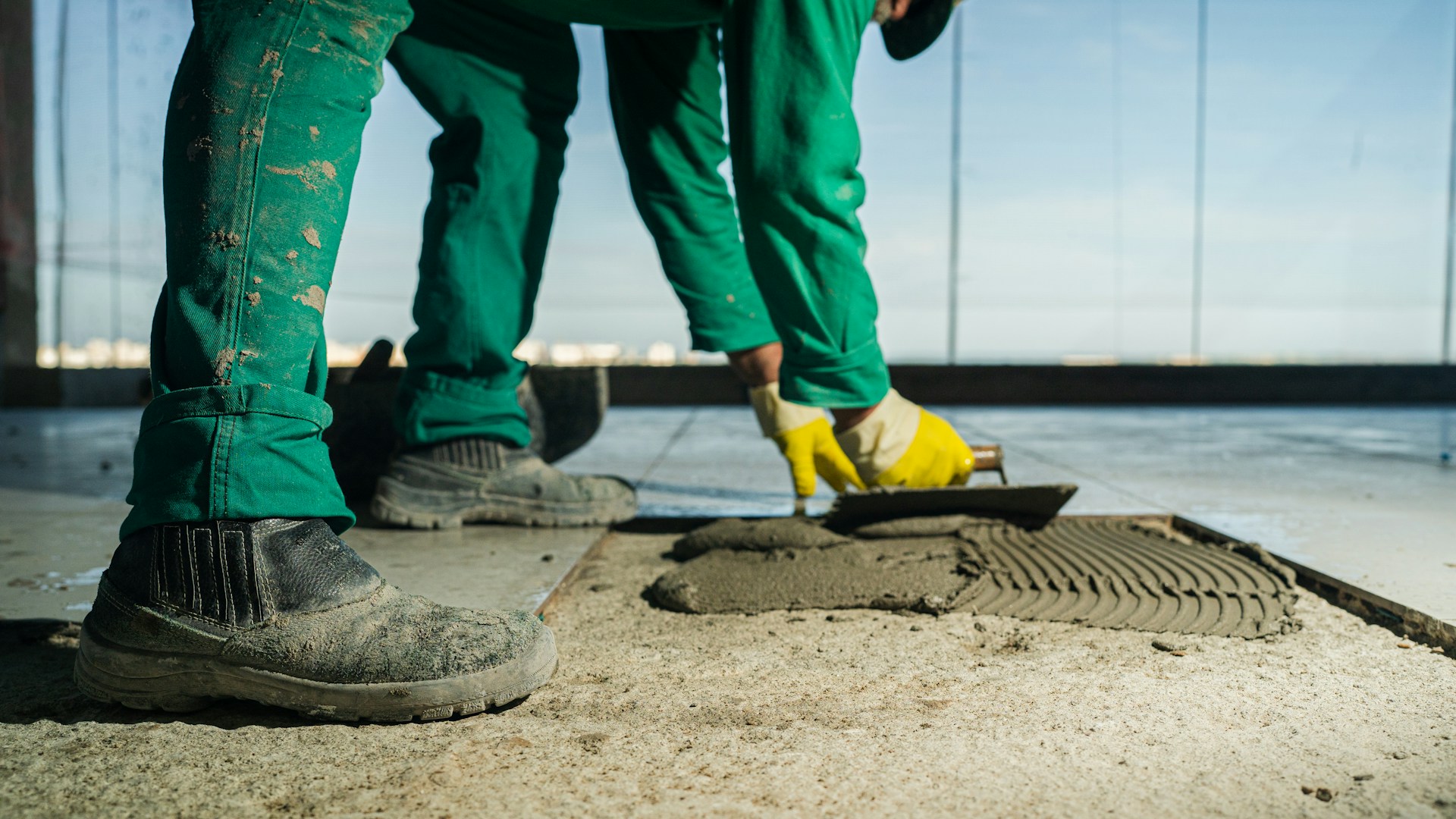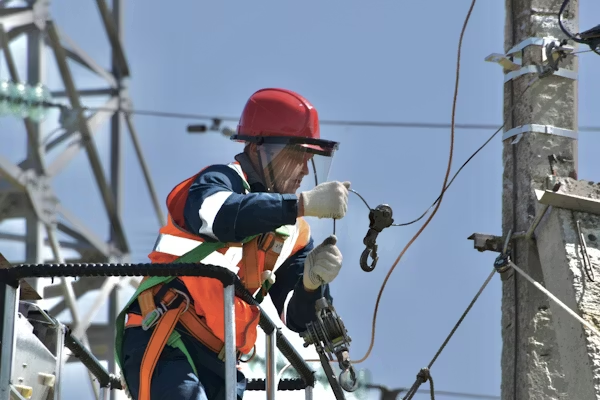
Looking for a reliable guide to floor screeding cost estimation?
Accurate cost estimates are essential for any successful construction project. In the booming floor screed market growing 6.2% annually, there are thousands of contractors ready to win your business. But that means getting quotes from multiple companies to get the best price. Getting the ball rolling is easy, but comparing those estimates can be overwhelming.
This is what is going on:
Most people fall into the trap of underestimating their floor screeding costs by 20-30%.
The result is project delays, budget overruns, stress and heartache.
In this comprehensive guide, I’m going to walk you through exactly how to do a proper floor screeding cost estimation step-by-step. This will ensure you budget appropriately and avoid nasty surprises.
Table of Contents
- 1 Let’s dig into the factors that go into floor screeding costs
- 2 Follow this proven step-by-step method for cost estimation
- 3 Learn about the different screed types and their prices
- 4 How to get the most accurate quotes for floor screeding
- 5 The Most Common Cost Estimation Mistakes to Avoid
- 6 Summary: Enjoy your Cost Journey
By the end, you will know:
- All the key cost factors and how to estimate them
- A proven method to calculate total price with an example
- All the types of screed available and how they differ in cost
- How to get the most accurate quotes from contractors
Let’s dig into the factors that go into floor screeding costs
Floor screeding cost estimation isn’t a simple process of multiplying square metres and material prices.
There are a whole host of different elements that come together to form your final project cost. If you don’t account for these, your estimate will likely be way off.
Material Type Makes a Huge Difference
The type of screed you choose makes up the single biggest cost of your project.
Traditional cement and sand screed is the cheapest option. It costs between £12-£15 per m² for the standard 75mm thickness. However it takes longer to install and has the longest drying times.
Liquid screed is more expensive, costing £16-£20 per square metre. But it is far quicker to install and self-levelling, which can save on labour costs.
The truth is: Liquid screed is often cheaper in the long run for larger projects despite the higher material cost.
Floor Area and Project Size
The size of your project has a dramatic impact on cost per square metre.
Smaller projects under 40 square metres have a higher cost per m² due to setup costs and minimum charge thresholds. Larger projects can get significant discounts.
Screed Thickness Requirements
Screed thickness will vary depending on your flooring type and subfloor conditions.
Thicker screeds obviously require more material and are more expensive. But underestimating thickness can cause problems later on.
Location and Access
Location is a big factor in pricing.
Construction prices are often 10-15% higher in rural areas than urban. This is due to higher transport costs and less competition between contractors. Urban areas have more contractors fighting for business which lowers the price.
Follow this proven step-by-step method for cost estimation
If you want to estimate your floor screeding cost accurately, just follow this simple, step-by-step method.
It’s the same one used by the professionals to create accurate quotes.
Step 1: Measure Your Floor Area
The first step is to get accurate measurements of the floor area that needs screeding.
Measure the length and width of each room in metres, and multiply these together to get the area in m². Add on an allowance of 5-10% extra for waste and cutting.
Pro tip: Use a laser measure for accuracy. Small errors in measuring can make a big difference to the price.
Step 2: Determine Screed Type and Thickness
Now choose the type of screed that is right for your project:
- Traditional screed: £12-£15 per m²
- Liquid screed: £16-£20 per m²
- Fast-drying screed: £18-£25 per m²
- Specialist screeds: £25-£50+ per m²
Standard screed thickness is 65-75mm.
Step 3: Calculate the Material Costs
Materials will typically be 40-60% of your total project cost.
Use the formula:
Material Cost = Floor Area × Screed Price per m² × Thickness Factor
Step 4: Add the Labour Costs
Labour rates vary depending on the location and the type of screed.
Average labour costs:
- Traditional screed: £12-£16 per m²
- Liquid screed: £8-£12 per m² (faster installation)
- Complex installations: £15-£20 per m²
Labour is a flexible cost element and can be negotiated.
In general, construction labour costs have risen 15% in the past year across the industry, due to skills shortages.
Step 5: Include Additional Costs
Don’t forget to factor in often overlooked costs:
- Site preparation: £3-£8 per m²
- Floor preparation: £5-£15 per m²
- Waste disposal: £2-£5 per m²
- VAT: 20% on the total
Step 6: Add a Contingency
Always include a contingency of 10-15% to cover unexpected costs.
This covers unexpected issues like subfloor levelling, access problems and material price fluctuations.
Learn about the different screed types and their prices
Choosing the right screed type is important for accurate cost estimation.
Each type has different properties and costs. Here are the main screed options:
Traditional Sand and Cement Screed
This is the most cost-effective option at £12-£15 per m².
It is tried and tested and readily available. However it requires more labour input to level properly. It also takes the longest to dry at 4-6 weeks.
Best for: Budget projects, small areas, DIY jobs
Liquid Screed (Flowing Screed)
Liquid screed costs £16-£20 per m² but has several advantages.
It is self-levelling which reduces labour costs. Installation time is up to 10 times quicker than traditional screed.
Best for: Large areas, underfloor heating, tight schedules
Fast-Drying Screed
Fast-drying screed is priced at £18-£25 per m² and reduces drying time to 12-48 hours.
It’s ideal for projects where a quick turnaround is needed. You can install flooring much sooner.
Best for: Commercial projects, short deadlines
Specialist Screeds
Specialist screeds include polymer modified and resin screeds at £25-£50+ per m².
They offer enhanced properties like chemical resistance and rapid curing. They are used in demanding applications such as factories and hospitals.
How to get the most accurate quotes for floor screeding
Getting accurate quotes is a vital part of the process.
Get Multiple Quotes
Always get at least 3 quotes from different contractors.
This gives you a range of prices to compare. It also helps you spot any outliers. Good quotes will be within 10-15% of each other.
Provide Detailed Information
Send each contractor the same detailed information.
Include floor plans with dimensions, photos of the current conditions and any deadline requirements.
Ask for Itemised Quotes
Request itemised quotes that break down costs by materials, labour, preparation work and VAT.
Itemised quotes make it much easier to compare like for like. It also shows where the biggest cost differences are between contractors.
Verify Credentials
Don’t take quotes from just any old contractor.
Make sure they are reputable, have the correct insurance and experience. Check out their references.
Remember: The cheapest quote is not always the best value. Quality and reliability also matter.
The Most Common Cost Estimation Mistakes to Avoid
Beware these expensive mistakes when estimating costs:
Underestimating Preparation Work
Underestimating the amount of preparation work needed can double your costs.
Allow for potential problems like removing old flooring, repairing subfloors and levelling the floor.
Ignoring Drying Time Costs
Long drying times add to overall project costs.
Factor in the cost of longer site access and delaying other trades.
Forgetting About Waste
Always factor in 5-10% for waste and offcuts.
Jobs with complex layouts have lots of corners and waste can be as high as 15%.
Summary: Enjoy your Cost Journey
Floor screeding cost estimation is a vital part of any project.
With UK construction output recently growing 7%, getting your costs right is more important than ever.
Remember the main steps:
- Measure floor area and choose screed type correctly
- Accurately calculate materials, labour and additional costs
- Get multiple quotes and ask for itemised quotes from reputable contractors
- Add contingency to cover unexpected costs
By following this simple step-by-step process you’ll be able to get accurate estimates. That will keep your project on budget and on schedule.
Don’t be tempted to skip the hard work of estimating costs. A few hours now can save you thousands later.


